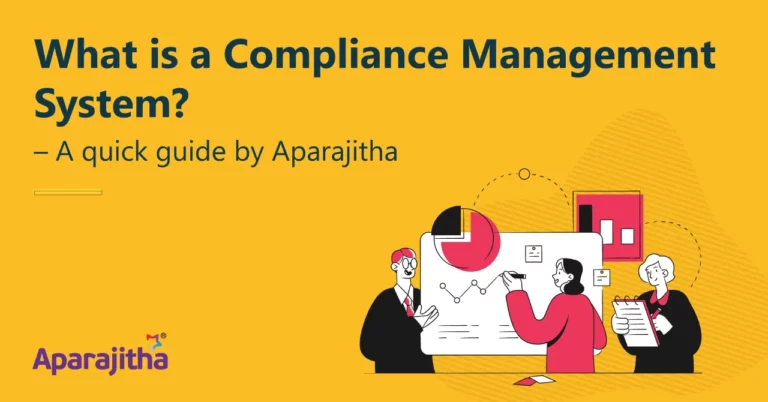Running a business in India is not just about meeting customer needs, driving sales, and scaling operations. There is another important pillar that decides whether a business experiences smooth growth or faces unnecessary disruption. That pillar is statutory compliance. Many companies see compliance as a routine legal formality. But in reality, ignoring statutory compliance in HR and other operational areas can seriously damage a business’s reputation and even threaten its survival.
From ensuring fair wages to maintaining health and safety standards, statutory compliance in India is designed to protect both workforce and business interests. Yet, several organisations either delay updates or take regulations lightly until penalties hit hard. Let us decode why compliance is more than just ticking checkboxes and how businesses can build a strong compliance culture.
Why Statutory Compliance Matters
Statutory compliance in HR refers to the legal framework related to employee treatment, compensation, workplace conditions, working hours, benefits, and social security. India has a large set of labour laws, such as the Employees Provident Fund and Miscellaneous Provisions Act, the Factories Act, the Payment of Wages Act, the Industrial Disputes Act, the Maternity Benefit Act, and more. Every business, small or large, is required to follow the laws applicable to its structure, workforce size, and industry type.
Compliance acts as a protective shield. It ensures employees get their rightful benefits, keeps employers away from legal trouble, and builds trust among stakeholders. When compliance is ignored, the consequences can be immediate or long-term. From penalty notices to courtroom battles and employee protests, the risks are huge.
The reality is simple. Businesses that give importance to compliance are seen as responsible and ethical. Those businesses that do not, quickly gain a reputation for being unprofessional or unsafe to work with. And reputation is one of the most valuable business assets in today’s competitive environment.
How Ignoring Compliance Damages Your Business Reputation
Many organisations only worry about compliance when legal deadlines are near or a government inspector visits the premises. However, the real damage often happens silently in the background. Here are some major impacts of non-compliance that every business should be aware of.
Loss of employee trust and productivity
When workers feel they are deprived of basic rights like minimum wages, paid leaves, PF or ESIC benefits, their morale drops. Unhappy employees do not give their best at work, affecting product quality and customer experience.
Financial penalties and legal cases
Government authorities have become stricter, especially with digital monitoring and online filings. One missed statutory compliance checklist item can lead to heavy fines, prosecution, and in some cases, business shutdown.
Challenges in business partnerships
Corporate clients and international firms prefer suppliers who are fully compliant. If your business fails to show records and certificates, you may lose contracts, tenders, and investment opportunities. Non-compliance becomes a red flag for potential partners.
Negative brand image in the market
In the age of social media and employee review platforms, even a small compliance violation can become public very fast. Stories of unfair labour practices or safety negligence can spread widely, leading to brand damage that may take years to recover.
Why Businesses Still Struggle With Statutory Compliance
Despite knowing the importance, many companies face compliance challenges every month. The reasons are not always intentional. Some of the common struggles include.
Complex and frequently changing laws
Statutory compliance in India can be overwhelming. Different states have different rules, and there are constant amendments to existing laws. HR teams often find it difficult to keep track of every modification and requirement.
Limited awareness and training
Many small and medium businesses do not have dedicated compliance professionals. Employees managing compliance may lack proper knowledge of updates in labour regulations or the statutory compliance checklist.
Inconsistent processes across locations: Each branch may follow its own way of handling statutory filings and HR documentation, leading to irregularities.
Limited visibility for the head office: Without a centralized compliance dashboard, management rarely has real-time updates on what’s been filed or missed at branch level.
Human errors and data mismatches: Manual tracking through spreadsheets or emails increases the risk of wrong entries, missed deadlines, and compliance gaps.
Different state regulations: Labour laws vary from one state to another, so branches may unintentionally overlook local requirements.
Delayed reporting and coordination issues: Communication lags between HR and accounts teams across regions often result in last-minute rushes or incomplete submissions.
Lack of a centralised compliance system
Scattered data, manual tracking, and irregular documentation lead to missed deadlines or incorrect filings. Without a Compliance management tool, compliance becomes time-consuming, and prone to human errors.
Building a Strong Compliance Culture. Best Practices for Businesses
Ignoring statutory compliance services and responsibilities is definitely risky. But with the right strategy, businesses can simplify the process and avoid trouble. Here are some practical best practices to adopt.
Understand applicable laws thoroughly
Start by identifying which acts apply to your industry and workforce. Maintain a clear statutory compliance checklist that includes monthly, quarterly, and annual obligations for PF, ESIC, minimum wages, bonus payments, maternity benefits, working conditions, and other HR related laws.
Invest in compliance expertise
Hiring compliance consultants or using statutory compliance services ensures accurate guidance and timely updates. Professional experts help reduce errors, improve documentation, and handle audits smoothly.
Maintain transparent and updated records
Compliance largely depends on proper documentation. Maintain organised records of employee details, attendance, payroll, contribution submissions, and safety measures. Digitising records reduces the risk of missing or misplaced documents.
Use digitised compliance solutions for accuracy
Modern HR technology solutions can auto-calculate contributions, remind deadlines, update statutory changes, and generate reports.
Implementing a unified compliance management system helps businesses overcome these challenges and maintain consistent statutory compliance across all branches.
Train HR teams and management
Awareness is the first step towards compliance. Conduct regular training sessions to educate employees about legal obligations, the importance of fair labour practices, and penalties of non-compliance.
Promote employee welfare and safety
Many compliance rules are centred around improving workplace safety and employee well-being. Conduct internal audits for safety, provide proper working conditions, and ensure timely wages. A safe and fair workplace automatically shapes a good reputation.
Conduct periodic compliance audits
Internal audits help identify gaps before authorities do. This proactive approach builds confidence within the leadership team and prevents future issues.
Reputation as a Competitive Advantage
Today, customers and investors prefer ethical businesses. Transparency is a key factor that pushes a brand forward. When organisations follow statutory compliance in HR sincerely, employees feel valued and remain loyal.
On the other hand, reputation once damaged is difficult to restore. There are many examples where companies faced years of backlash due to labour law violations, safety disasters, or wage exploitation reports. In short, strong compliance is equal to a strong reputation.
Future Proof Your Reputation Through Compliance
Statutory compliance in India is not optional. It is a must for business continuity, legal protection, and long-term success. Instead of seeing compliance as a burden, companies should view it as an opportunity to build a trustworthy and people-centric brand.
By embracing technology, partnering with statutory compliance services experts, and maintaining a robust statutory compliance checklist, businesses can avoid legal trouble and maintain a positive reputation.
A compliant business is a respected business. And respect in the market is the biggest victory any company can earn.







